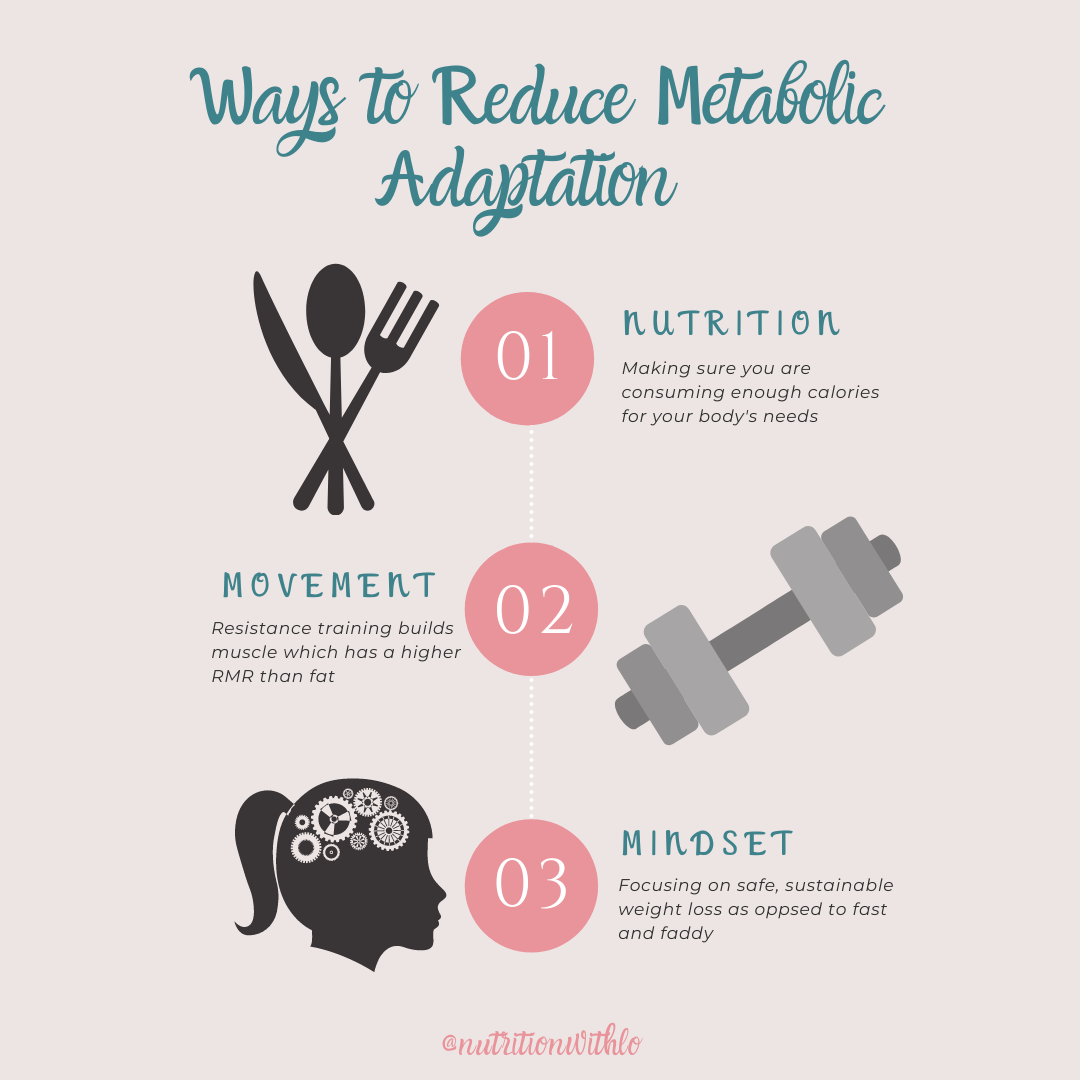Weight loss: the number one reason why clients seek help from a nutritionist or dietitian. Many of us have experience of going on a diet, seeing progress initially, only to find that weight loss slows or, even worse, plateaus. This leads to frustration, loss of motivation and ultimately the weight piling back on. We can’t count the number of times clients have come in, scratching their heads trying to figure out what went wrong. If this sounds all too familiar, you’re going to want to read on because we’ll be explaining the how and why behind this process (also called metabolic adaptation) and what you can do to avoid this common dieting pitfall.
What is metabolic adaptation?
Metabolic adaptation is a series of responses our body utilizes as a survival mechanism in response to it being in a calorie deficit. This differs from metabolic syndrome; a chronic condition which carries significant health risks including heart disease, stroke and blood clots. Metabolic syndrome covers a group of symptoms including diabetes/pre-diabetes, high blood pressure, insulin resistance and high triglycerides. Meanwhile, the main symptoms of metabolic adaptation are plateaus in weight loss and lots of yelling at the scales!
When does metabolic adaptation occur?
Our bodies like to be in balance (AKA ‘homeostasis’) and so when we start to lose weight by reducing our energy intake, our metabolism slows and hormones adjust to decrease our energy output (Müller and Bosy-Westphal 2013). This elegant mechanism puts our bodies back in balance and protects us from starvation, but it’s beyond annoying when trying to diet. Significant metabolic adaptation seems to occur after 3-6 months of dieting, and eating too few calories and yoyo dieting are the most common causes.
So that’s all interesting, but what do we do about metabolic adaptation?
The number one way to mess with your metabolism is to dramatically reduce your calorie intake. We can’t stress enough how important it is to avoid creating a drastic calorie deficit when dieting. It’s also important that your current maintenance calorie level is high enough before starting to restrict calories. To the surprise of many, this may mean that you need to take a break from dieting all together and even go through a reverse dieting phase (i.e. slowly increasing your calorie intake) prior to a planned deficit.
The human body is not designed to be in a diet mode forever. We must strategically alternate phases of being in a calorie deficit with being in phases of weight maintenance to decrease the risk of metabolic adaptation. For example, the MATADOR study found that repeated rounds of alternating between two weeks of dieting and two weeks of maintenance for 30 weeks achieved the same rate of weight loss as a 16-week continuous diet but with less metabolic adaptation (Byrne et al. 2017).

Above all, focusing on healthy weight loss versus wanting to lose weight as fast as possible, is essential. Our mind-set, movement and nutrition is vital for avoiding metabolic adaptation. Additionally, sometimes the cause of weight loss resistance is multifactorial and that’s where functional medicine can help. During our work together we start with customized advanced lab testing to pull back the hood on how your body is functionally internally. From there we can devise a customized and evolving plan to provide healing and metabolic restoration. To read more about some of our previous client’s success stories with this, check out our success stories page here (link to success stories).
In Health,
Lizzy Cangro
References
Byrne, N., Sainsbury, A., King, N., Hills, A. and Wood, R. (2017). Intermittent energy restriction improves weight loss efficiency in obese men: the MATADOR study. International Journal of Obesity, 42(2), pp.129-138.
Müller, M. and Bosy-Westphal, A. (2013). Adaptive thermogenesis with weight loss in humans. Obesity, 21(2), pp.218-228.Stronger by Science. (2019). The Metabolic Adaptation Manual: Problems, Solutions, & Life After Dieting. Available at: https://www.strongerbyscience.com/metabolic-adaptation/
Comments +